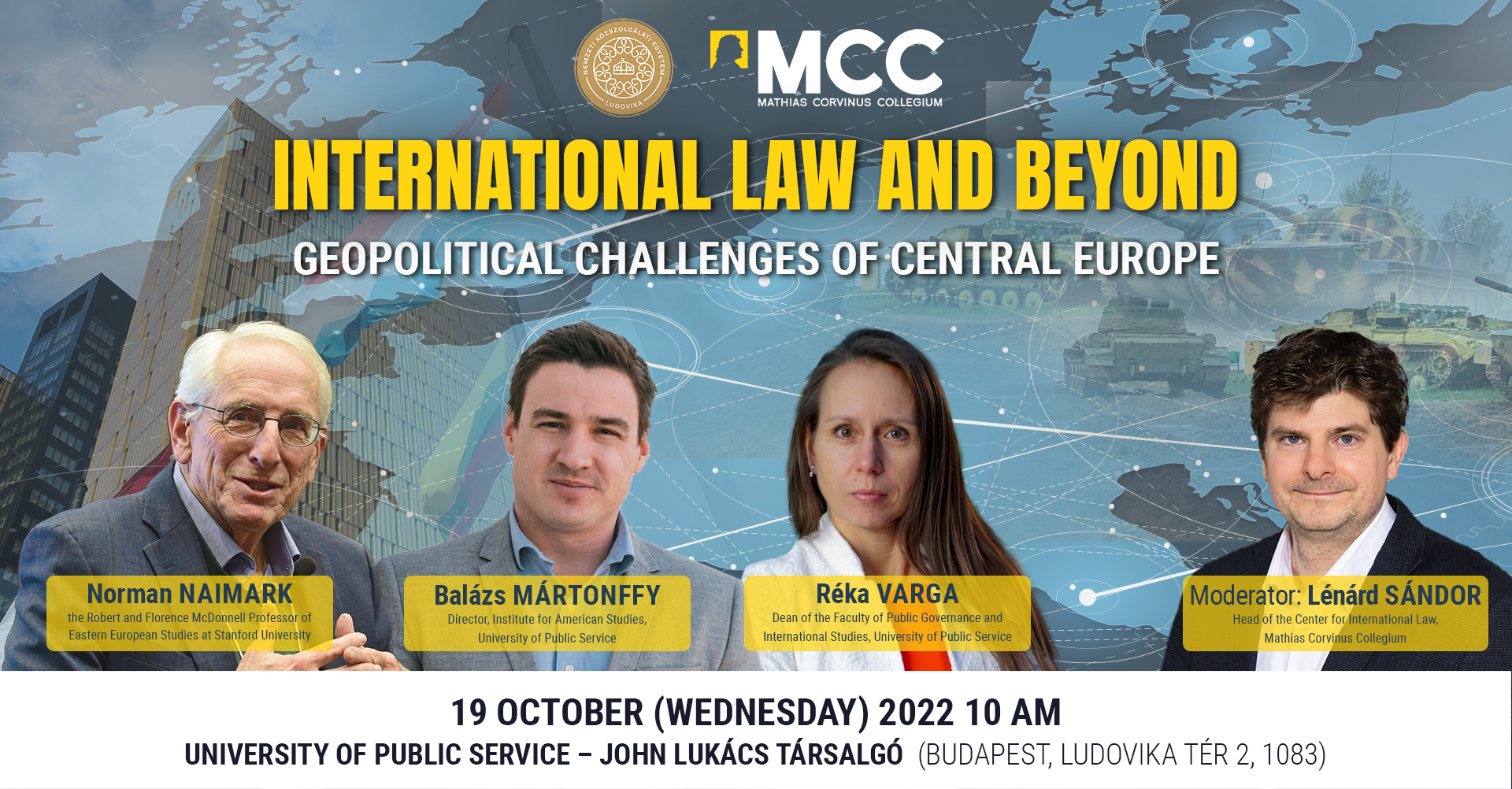International Law and Beyond: Geopolitical Challenges of Central Europe
Ludovika Szárnyépület/Földszint-John Lukacs Társalgó
Ludovika Szárnyépület

Is the Central European region a bridge between East and West, or a periphery of a major ideological block? Is it a land with a potential to flourish, or is it doomed to be dominated by foreign ideological preferences? This is one of the key questions that has run through the history of the Central European region. Surrounded by forceful powers, this region has been exposed to imperialistic impositions of foreign ideologies; sovereignty and self-determination have always come at a high price. This historical truth is also reflected in the ongoing armed conflict between Russia and Ukraine. Not only Russia’s act of aggression is quite unprecedented in the Post-World War II era, but the way the non-belligerent Western powers are implicated and made themselves central players in the war is also unparalleled. Is a new Iron Curtain about to be dropped on the European continent? What are the legal and political consequences and stakes of the war, and how can it come to end? Can this region have an influence in the course of events? Who are the major players? These and similar questions are to be addressed by the panel discussion with Norman Naimark, the Robert and Florence McDonnell Professor of Eastern European Studies at Stanford University, Réka Varga, Dean of the Faculty of Public Governance and International Studies and Balázs Mártonffy, Head of the Institute for American Studies of the University of Public Service. The discussion is co-organized by the Mathias Corvinus Collegium and the University of Public Service and moderated by Lénárd Sándor, Head of Center for International at the Mathias Corvinus Collegium.
We welcome all those interested!
Szakos Judit